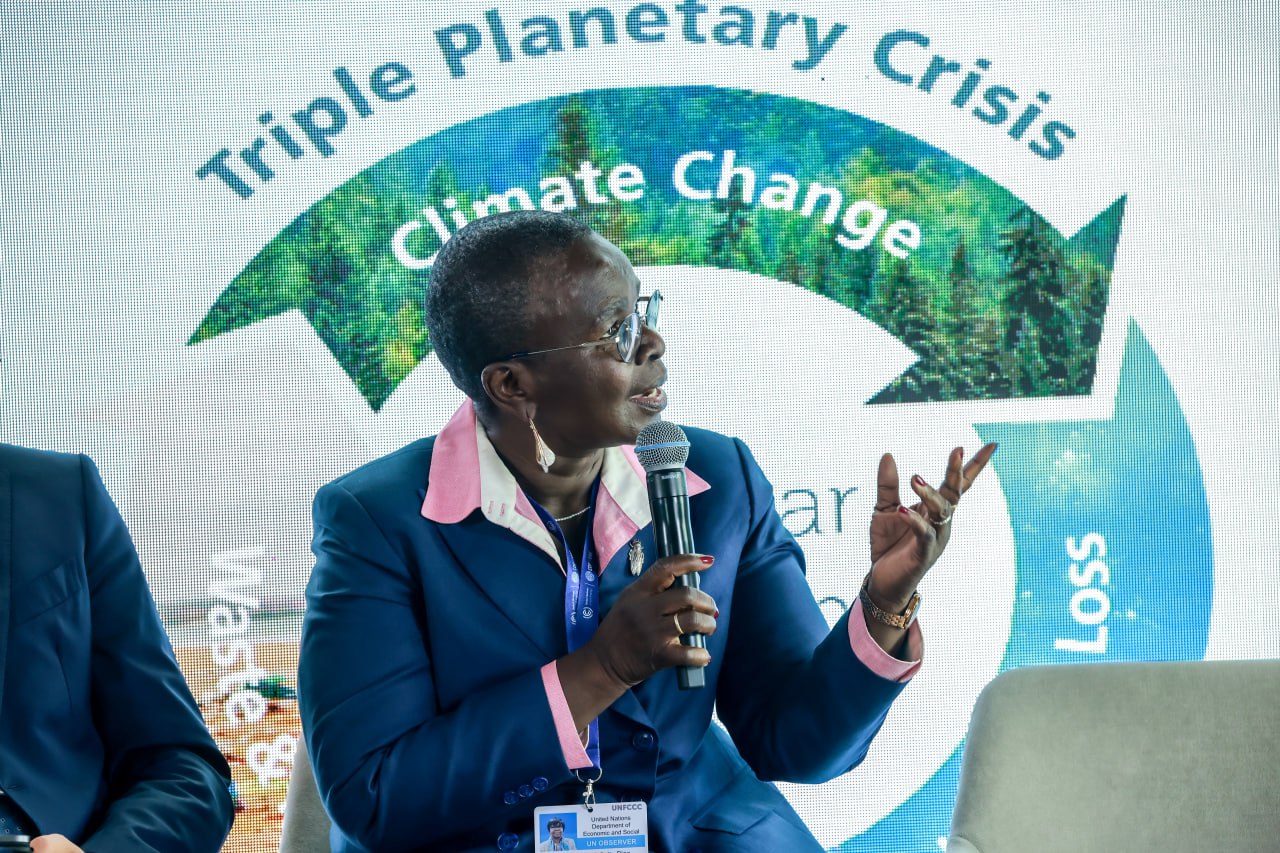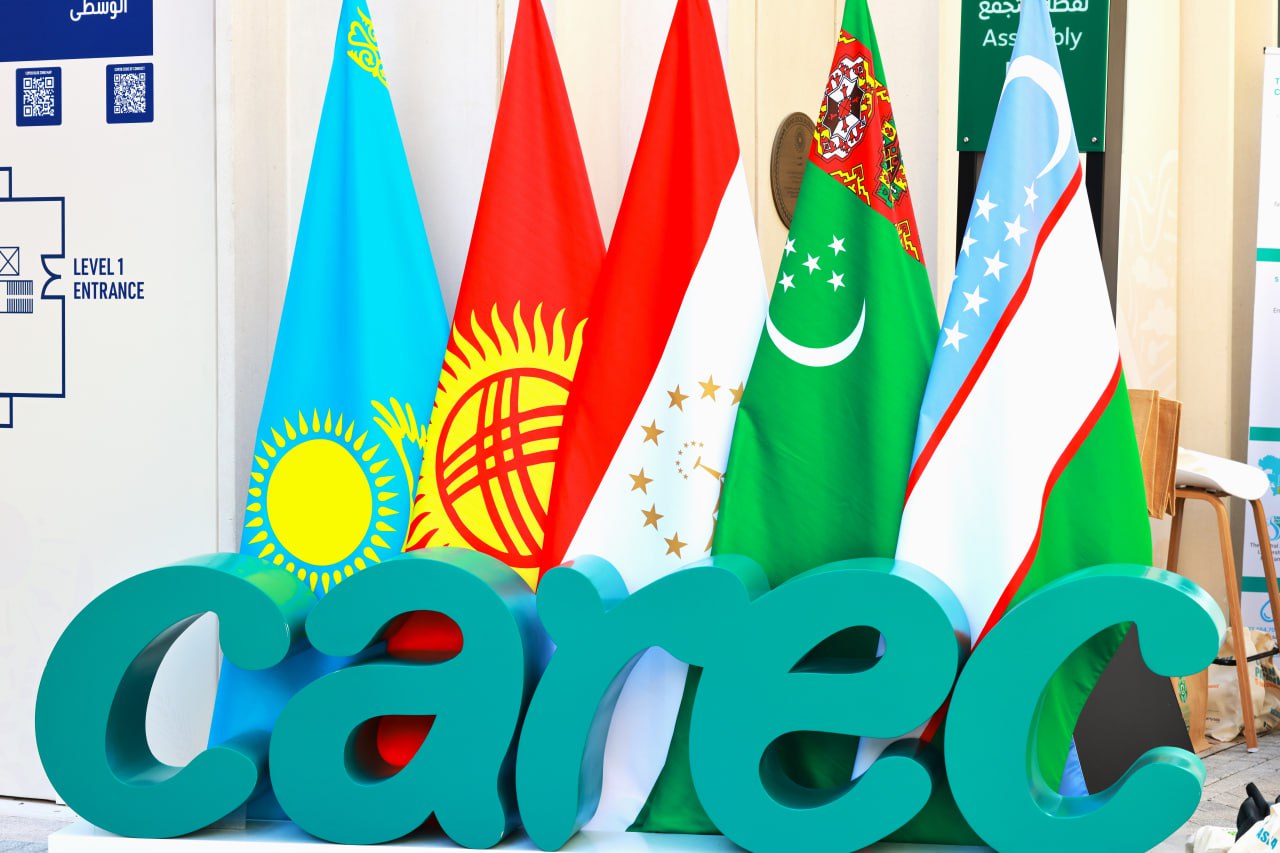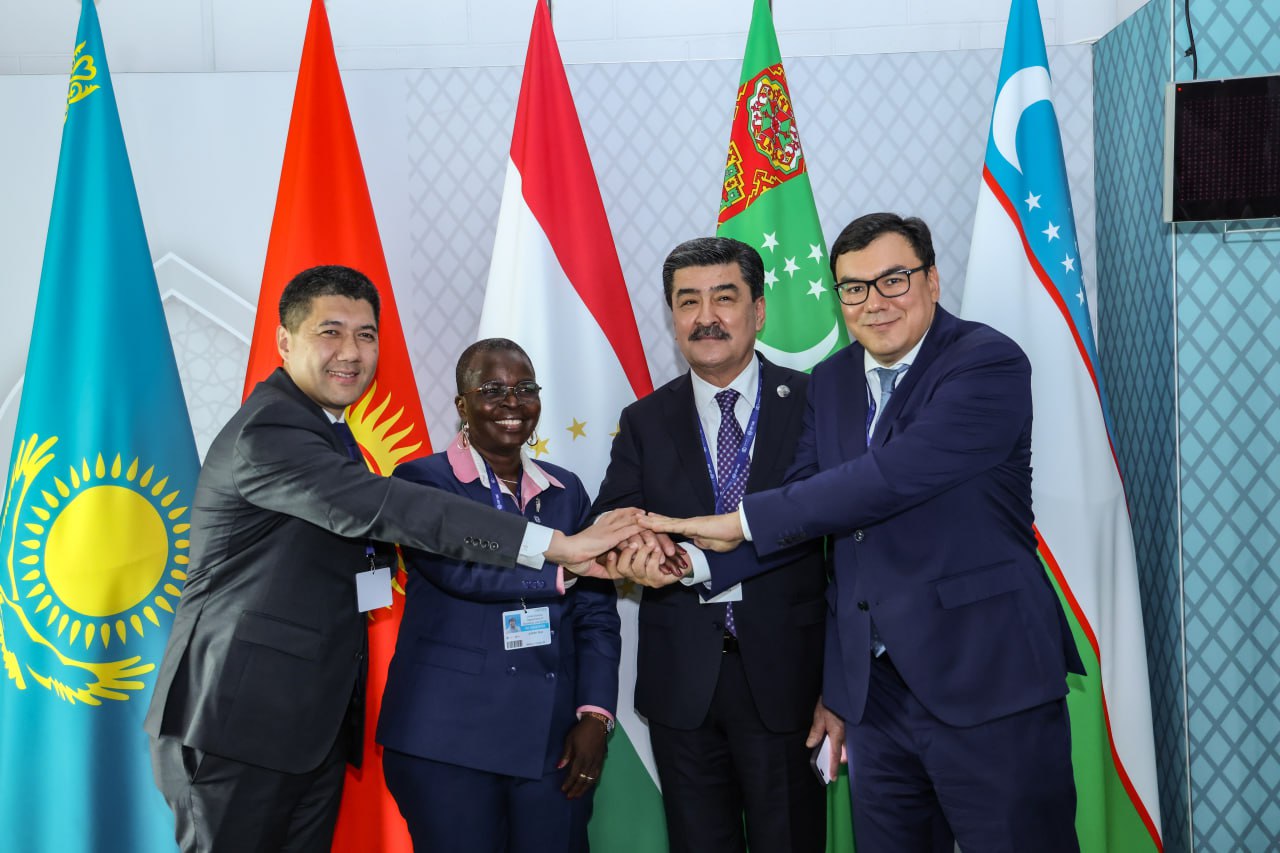
A event titled "Solidarity and Unity in the Face of the Challenges of the Triple Planetary Crisis" took place at the Central Asia Pavilion in Dubai as part of the 28th United Nations Climate Change Conference (COP28).
The event brought together Director of the Secretariat of the United Nations Forum on Forests (UNFF), Dr. Juliet Biao Koudenoukpo, and the Ministers of Environment from three Central Asian countries: Melis Turgunbaev, the Minister of Natural Resources, Ecology, and Technical Supervision of the Kyrgyz Republic; Erlan Nysanbayev, the Minister of Ecology and Natural Resources of the Republic of Kazakhstan; and Aziz Abdukhakimov, the Minister of Ecology, Environmental Protection, and Climate Change of the Republic of Uzbekistan.
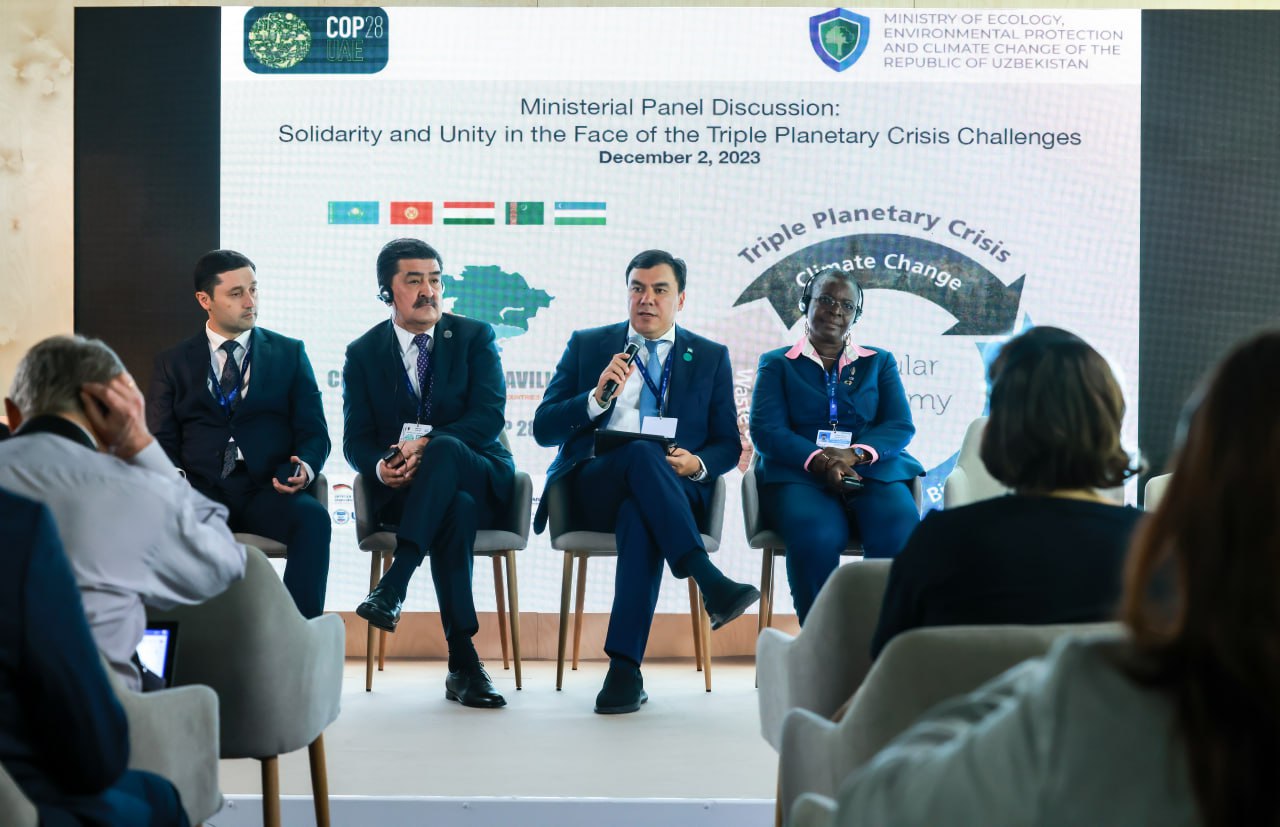
The aim of the event was to strengthen the voice of the Central Asian countries on the international stage of the United Nations regarding ecology and climate change issues, as well as to mobilize support for the initiative of the President of the Republic of Uzbekistan, Sh. Mirziyoyev, regarding the adoption of the United Nations General Assembly Resolution "Central Asia in the Face of Global Climate Threats: Solidarity for Shared Prosperity."
During the meeting, the participants discussed the new challenges and difficulties faced by the international community as a whole, particularly the Central Asian countries, starting from the "Triple Planetary Crisis," characterized by biodiversity loss and extending to waste pollution and climate change.
It should be noted that according to experts' data, over the past 30 years, the air temperature in the Central Asian region has increased by 1.5 degrees, which is twice the global average level. In the near future, this could lead to a 25% reduction in water availability per capita and a 40% decrease in crop yields.
During the dialogue, Erlan Nysanbayev highlighted that climate change results in economic losses, such as the current annual loss of 2% of global GDP.
In turn, Aziz Abdukhakimov emphasized that the pressing issues of the triple planetary crisis, such as air pollution and the loss of biodiversity in the Aral Sea region due to frequent salt and sandstorms, are the most significant problems in the entire region, affecting over 30 million out of the 70 million inhabitants of Central Asia due to air pollution.
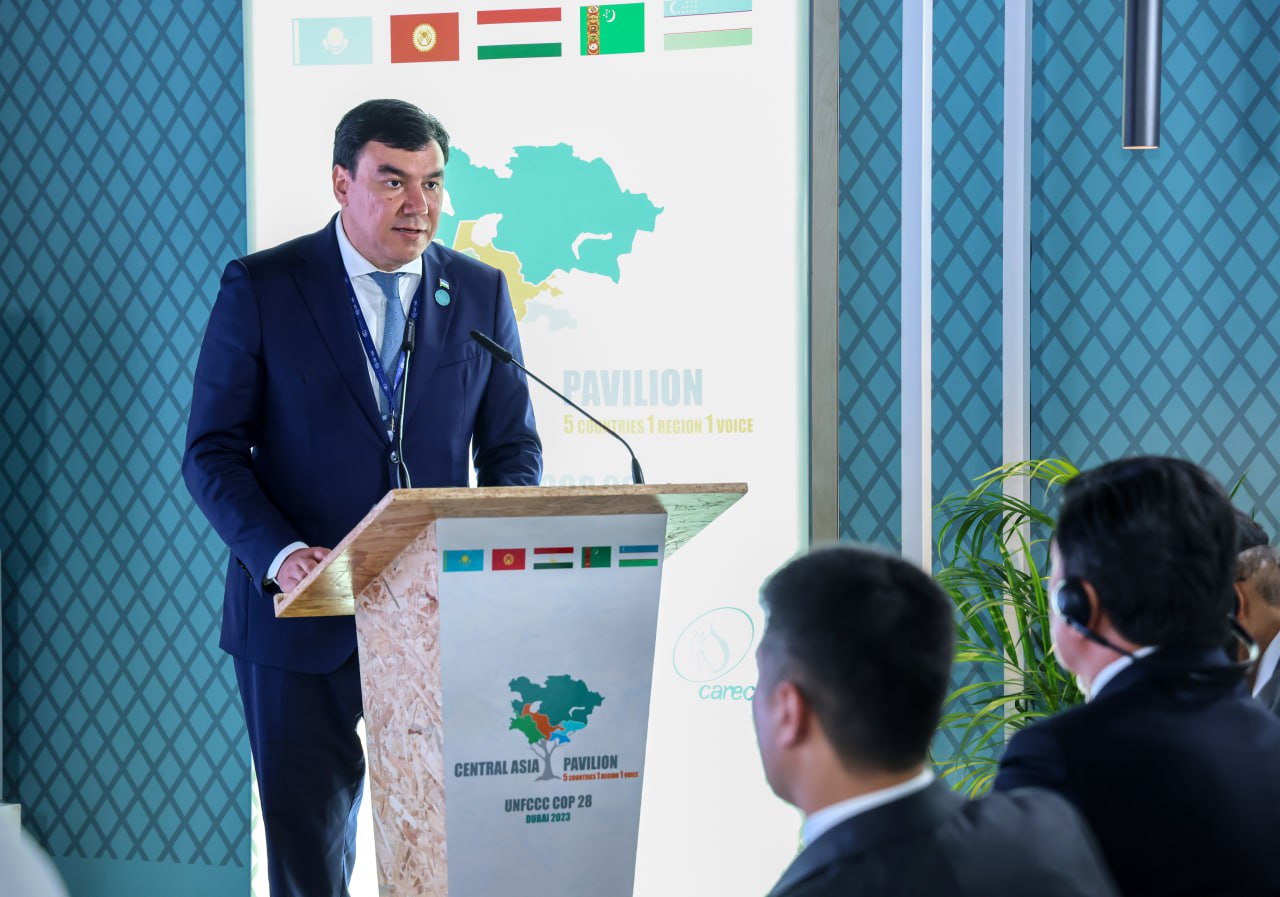
Against the backdrop of discussing these climate issues, Melis Turgunbaev called for further strengthening regional cooperation, fostering constructive and fair dialogue aimed at sustainable management of transboundary water resources, ensuring food security, and promoting sustainable agriculture in the region.
During the event, Aziz Abdukhakimov emphasized the importance of Central Asian countries coming together to voice the positions, interests, and ideas of the region on various international platforms within the United Nations. According to the Minister, at the current United Nations Climate Change Conference, it is essential for Central Asian countries to join the recently established mechanism of the Loss and Damage Compensation Fund.
"This is a good tool that can attract financial resources to the region for compensating the damages caused by climate change. For this, the Central Asian countries must act collectively in voicing the region's problems. The contribution of the Central Asian region to the global greenhouse effect is insignificant, probably, but the region, like small island states, suffers the most from global warming," the Minister explained.
It is worth noting that the participation of environmental leaders from Central Asian countries in the high-level plenary session "Solidarity and Unity in the Face of the Challenges of the Triple Planetary Crisis" at COP28 demonstrated the countries' commitment to strengthening regional dialogue and knowledge exchange on climate and sustainable development issues. It also reflected the solidarity of the regional countries in tackling climate change and their readiness to jointly confront future challenges.
